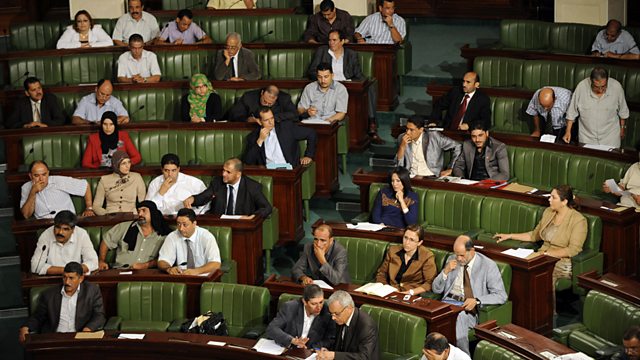The Art of Political Decision Making
Political decisions are often hard to make, so, in our complex world, should we replace personal responsibility by one leader with collective, consensual ways of making choices?
How can we embrace the views of many and still take decisive action? Joining Bridget Kendall are Harvard Professor Joseph Nye, who asks how much individual decisions by American presidents mattered over the course of the last century; veteran of the Occupy Wall Street movement, social anthropologist David Graeber who talks about an alternative way of decision making, a consensus model; dialogue facilitator Martijn de Liefde who has adapted traditional African techniques to guide decisions in today鈥檚 large companies; and Oxford professor Stephen Whitefield who explains why politicians are increasingly appealing to our emotions.
(Photo: Fethi Belaid/AFP/GettyImages)
Last on
More episodes
Previous
Chapters
-
Part 1
Duration: 23:00
Part 2
Duration: 17:30
Joseph Nye

David Graeber

Martijn de Liefde

Stephen Whitefield

Comments on the programme
Walt Zink
聽 聽 聽 聽 聽Waking up at 3.30am isn't my favourite event and being kept awake by
such a brilliant discussion was spectacularly annoying - but worth it.
If only all radio were this original and well-informed. Absolutely
stunning. Congratulations.聽
Margaret Heffernan
In Next Week's Programme
Broadcasts
- Sat 11 May 2013 23:06GMT大象传媒 World Service Online
- Sun 12 May 2013 10:06GMT大象传媒 World Service Online
- Mon 13 May 2013 02:06GMT大象传媒 World Service Online
Podcast
-
![]()
The Forum
The programme that explains the present by exploring the past


